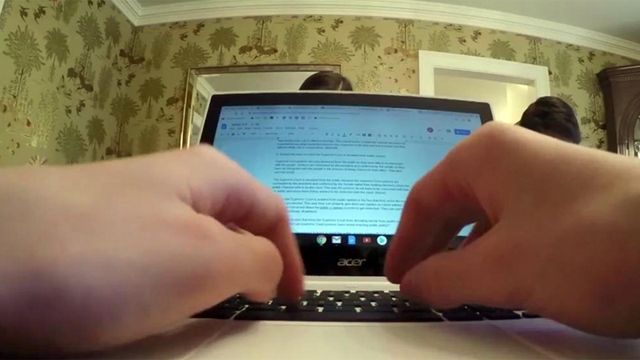State lawmakers poised to spend $1B on pandemic relief
Republican legislative leaders say they've agreed on a $1 billion package to spend remaining federal CARES Act pandemic relief funds. They plan to approve the measure quickly during a two-day session.
Posted — UpdatedHouse and Senate GOP budget writers gathered Tuesday to present the highlights of the package, House Bill 1105, to reporters in advance of the session, which is set to start Wednesday at noon. The bill is expected to clear the Senate first, with final House approval Thursday.
So far, however, Congress hasn’t given approval to use the money to backfill revenue shortfalls. Because the money has to be spent by the end of December, lawmakers have come up with other proposals for it.
About $440 million will be spent on a new grant program for families of the state's K-12 students.
The “Extra Credit” grant program will send a $325 check to every household with one or more students. Sen. Brent Jackson, R-Sampson, said the checks are meant to offset some of the pressures caused by school closures during the pandemic.
"Parents are facing many unexpected financial burdens – lost hours, worrying about child care, supplemental materials and so much more," said Jackson, a top budget writer in the Senate. "This assistance is designed to help alleviate some of that burden and show we care."
The package also includes $35 million for "operational flexibility" grants to help child care centers keep their doors open despite sagging revenues and rising overhead due to virus prevention measures. It also includes $20 million in child care subsidy funds for lower-income workers.
Lawmakers said they're not yet proposing to change the duration or calculation of jobless benefits.
"With the high unemployment rate, it’s not easy for someone to go out and find a job if they lose theirs, and that’s the point of unemployment assistance – to be there when somebody can’t find a job," said Sen. Chuck Edwards, R-Henderson.
The overall package also contains $5 million in elections funding to help recruit poll workers for in-person voting this fall:
- $3 million would be set aside for a $100-per-day raise for poll workers.
- $1 million would pay for an ad campaign to recruit poll workers.
- $1 million would be available for grants to county elections boards for protective gear and other preventive measures to ensure safety for in-person voters.
School vouchers, incentives also on agenda
Unlike earlier pandemic relief packages, the bill seems designed to elicit partisan division.
The measure includes a large proposed expansion of the state’s "Opportunity Scholarship" school voucher program. It would increase the maximum allowable household income for eligibility for the program to $72,000 for a family of four. It would also remove the enrollment caps for kindergarten and first-grade applicants.
GOP leaders say that, because of the pandemic, it’s more important than ever to make sure lower-income families can afford to send their children to private schools if public schools aren’t meeting their needs, especially younger students and exceptional-needs students who may not respond well to remote learning.
The inclusion of such a "poison pill" provision could set up a partisan battle this week, leaving Cooper in the politically difficult position of vetoing a billion dollars in relief funds less than 60 days before the general election.
The Governor's Office didn't immediately respond to a question as to whether the voucher spending could prompt a veto.
GOP lawmakers said Tuesday they also plan to pass a measure this week to fund incentives for a major economic development announcement expected Sept. 9. That measure, House Bill 807, will be heard in Senate Commerce on Wednesday afternoon and is also expected to clear the House by Thursday.
• Credits
Copyright 2024 by Capitol Broadcasting Company. All rights reserved. This material may not be published, broadcast, rewritten or redistributed.





